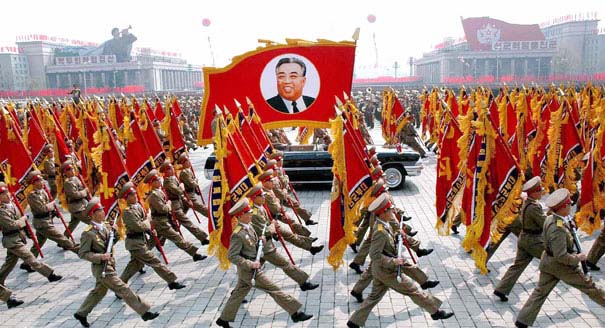Registration
You will receive an email confirming your registration.
As the United States and North Korea try to trade some form of denuclearization for diplomatic and economic normalization, it is important for the United States and its allies to consider the potential impact of various approaches on common interests. This includes considering technical, political, and security aspects of dismantling North Korea’s programs from an alliance perspective in order to maximize effectiveness and cohesion.
Our half-day conference—featuring scholars and former officials from Japan, the United States, and South Korea—examined practical denuclearization options that can enhance collective security and contribute to a more stable foundation for regional peace.
Agenda
8:30 a.m.
Opening Remarks
Douglas H. Paal
8:35 a.m. to 9:15 a.m.
United Nations Command in the Dynamic Korean Situation
Lt. General Wayne D. Eyre
Deputy Commander, United Nations Command (Republic of Korea)
9:15 to 10:30 a.m.
Scope of the Denuclearization Challenge
Nobumasa Akiyama, Corey Hinderstein, Joshua H. Pollack, Toby Dalton
10:45 a.m. to 12:15 p.m.
Alliance Priorities and Working Towards a Best-Case Outcome
Kenichiro Sasae, Susan A. Thornton, Chung Min Lee, Suzanne DiMaggio, James L. Schoff
Participants
Lt. Gen. Wayne D. Eyre
Lt. Gen. Wayne D. Eyre of the Canadian Armed Forces is the deputy commander of United Nations Command in Korea. He previously served as the head of the Canadian Army in Western Canada as commander of 3rd Canadian Division in Edmonton and Joint Task Force West.
Kenichiro Sasae
Kenichiro Sasae is president of the Japan Institute of International Affairs. Until June 2018 he served as Japan’s ambassador to the United States and was previously Japan’s vice minister of Foreign Affairs between 2010 and 2012.
Susan A. Thornton
Susan A. Thornton recently retired from the U.S. Department of State where she previously served as principal deputy assistant secretary in the Bureau of East Asian and Pacific Affairs between 2016 and 2018.
Douglas H. Paal
Douglas H. Paal is vice president for studies at the Carnegie Endowment for International Peace. He previously served as unofficial U.S. representative to Taiwan as director of the American Institute in Taiwan.
Nobumasa Akiyama
Nobumasa Akiyama is a professor at the Graduate School of Law and the Graduate School of International and Public Policy at Hitotsubashi University in Japan, and an adjunct research fellow at the Japan Institute of International Affairs.
Corey Hinderstein
Corey Hinderstein serves as vice president of international fuel cycle strategies at the Nuclear Threat Initiative. She previously was senior coordinator for nuclear security and nonproliferation policy affairs at the National Nuclear Security Administration in the U.S. Department of Energy.
Joshua H. Pollack
Joshua H. Pollack is the editor of The Nonproliferation Review and a senior research associate at the Middlebury Institute of International Studies at Monterey. He is recognized as a leading expert on nuclear and missile proliferation, focusing on Northeast Asia.
Toby Dalton
Toby Dalton is the co-director of the Nuclear Policy Program at the Carnegie Endowment. An expert on nonproliferation and nuclear energy, his work addresses regional security challenges and the evolution of the global nuclear order.
Chung Min Lee
Chung Min Lee is a senior fellow in Carnegie’s Asia Program. He is an expert on Korean and Northeast Asian security, defense, intelligence, and crisis management.
Suzanne DiMaggio
Suzanne DiMaggio is a senior fellow at the Carnegie Endowment for International Peace, where she focuses on U.S. foreign policy toward the Middle East and Asia, especially Iran and North Korea.
James L. Schoff
James L. Schoff is a senior fellow in the Carnegie Asia Program. His research focuses on U.S.-Japan relations and regional engagement, Japanese politics and security, and the private sector’s role in Japanese policymaking.
